Best Programming Language Migration Tools to Buy in November 2025
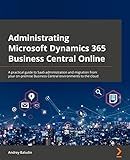
Administrating Microsoft Dynamics 365 Business Central Online: A practical guide to SaaS administration and migration from your on-premise Business Central environments to the cloud


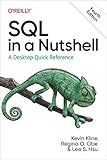
SQL in a Nutshell: A Desktop Quick Reference


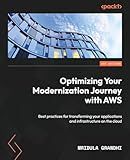
Optimizing Your Modernization Journey with AWS: Best practices for transforming your applications and infrastructure on the cloud


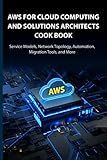
AWS FOR CLOUD COMPUTING AND SOLUTIONS ARCHITECTS COOK BOOK: Service Models, Network Topology, Automation, Migration Tools, and More


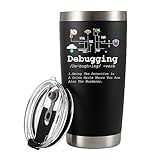
Debugging Definition Computer Programmer Student Teacher Geek Coder Friend Coding Programming IT Vacuum Insulated Tumbler Nerd Tech Support Travel Mug Stainless Steel With Straw Removable Lid (20 oz)
-
MAINTAIN YOUR DRINK'S TEMPERATURE FOR HOURS-STAY REFRESHED ON-THE-GO!
-
PERFECT GIFT FOR PROGRAMMERS WITH A HUMOROUS QUOTE-MAKE THEM SMILE!
-
PREMIUM STAINLESS STEEL, VACUUM INSULATION-DURABLE AND SWEAT-FREE DESIGN!


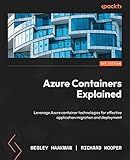
Azure Containers Explained: Leverage Azure container technologies for effective application migration and deployment


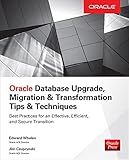
Oracle Database Upgrade, Migration & Transformation Tips & Techniques


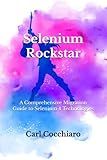
Selenium Rockstar: A Comprehensive Migration Guide to Selenium 4 Technologies


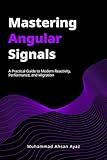
Mastering Angular Signals: Boost Performance and Simplify State Management. The key to Zoneless Apps and Migrating from RxJS & NgRx (if not using Signals).


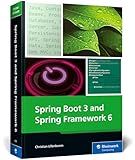
Spring Boot 3 and Spring Framework 6: Build Scalable, Modern Java Applications with Spring and Spring Boot—From Fundamentals to Advanced Techniques (Rheinwerk Computing)


Migrating from C++ to PHP involves transitioning from a compiled, statically typed programming language to an interpreted, dynamically typed scripting language. Here are the key aspects to consider when undertaking such a migration:
- Syntax Differences: C++ and PHP have different syntaxes, so be prepared to learn and adapt to PHP's syntax. For example, PHP does not require semicolons at the end of each statement, and it uses the dollar sign ($) for variable declaration.
- Understanding PHP Fundamentals: Familiarize yourself with PHP's fundamental concepts such as variables, data types, control structures, functions, and object-oriented programming if applicable. PHP also offers built-in support for web development, so learn about handling HTTP requests, working with databases, and generating HTML.
- Dynamic Typing: One of the significant differences between C++ and PHP is dynamic typing. Unlike C++, which requires explicit type declarations, PHP determines the variable type based on its assigned value. This flexibility can lead to performance trade-offs, so be cautious while handling data types.
- Memory Management: In C++, developers have direct control over memory management, whereas PHP handles memory management automatically via a garbage collector. This results in reduced manual memory allocation and deallocation in PHP, removing some complexities of memory handling.
- Web Development Considerations: If you were using C++ for web development, understand how PHP simplifies this process. PHP provides various built-in functions and libraries for handling HTTP requests, generating dynamic HTML content, and interacting with databases.
- Porting Existing Code: Migrating C++ code to PHP involves rewriting and adapting the codebase. Focus on breaking down the code into logical chunks, understanding the functionality, and then migrating it piece by piece. Utilize PHP's equivalent functions or develop custom solutions as necessary.
- Testing and Quality Assurance: As with any migration, thorough testing is essential to ensure the correctness and integrity of the migrated code. Establish a comprehensive testing plan and execute unit tests, integration tests, and functional tests to identify and rectify any issues or discrepancies.
- Performance Considerations: While PHP offers rapid development and ease of use compared to C++, it may not be as performant in all scenarios. Be mindful of any performance bottlenecks and optimize critical sections of the code, if required.
- Leveraging PHP Ecosystem: PHP has a vast ecosystem of libraries, frameworks, and tools that can enhance your development experience and productivity. Explore popular PHP frameworks like Laravel, Symfony, or CodeIgniter, and leverage existing packages to expedite development without reinventing the wheel.
Migrating from C++ to PHP requires careful planning, dedication, and a willingness to learn. Ensure you have a solid understanding of PHP's capabilities and limitations, and gradually transition your codebase while consistently testing and optimizing to achieve a successful migration.
How to migrate from C++ to PHP?
Migrating from C++ to PHP requires understanding the differences between the two languages and adapting your code accordingly. Here are the steps to migrate from C++ to PHP:
- Understand the syntax differences: PHP has a different syntax compared to C++. Learn about PHP's syntax, such as variables, functions, control structures, and object-oriented programming.
- Port your data types: PHP is dynamically typed, so you need to convert your C++ code that relies on specific data types to PHP's dynamic variables. For example, change int to $int, float to $float, and so on.
- Identify and update libraries and APIs: If your C++ code uses external libraries or APIs, you'll need to find equivalent or similar libraries in PHP. The PHP documentation can help you find the appropriate extensions or built-in functions.
- Update file I/O operations: PHP has different functions for reading and writing files compared to C++. Replace your C++ file I/O operations with PHP's file functions, such as fopen, fwrite, fclose, and so on.
- Rewrite loops and control structures: PHP has similar control structures to C++, but the syntax may vary. Review your C++ code's loops (for, while, do-while) and conditional statements (if-else, switch) and update them to PHP syntax.
- Adapt object-oriented code: If your C++ code uses classes and objects, you'll need to rewrite them using PHP's object-oriented programming paradigm. Understand PHP's class, object, and inheritance concepts and update your code accordingly.
- Test and debug: Thoroughly test your migrated code to ensure it functions correctly in PHP. Debug any issues that arise during the migration process.
- Optimize performance: PHP is an interpreted language, so it may have different performance characteristics compared to compiled C++. Identify any bottlenecks or performance issues and optimize your code for PHP.
- Use PHP-specific features: Take advantage of PHP's unique features, such as built-in functions and libraries that C++ may not have. Explore the PHP documentation to learn what functionalities can simplify your code.
- Refactor and improve: Use the opportunity of migration to improve your code further. Clean up any unnecessary or redundant code, follow PHP best practices, and make use of PHP-specific techniques, patterns, and frameworks for better code organization and maintainability.
Remember that migrating from one language to another involves more than just translation. Take the time to understand the differences between C++ and PHP, and adapt your code appropriately for a successful migration.
How to handle file I/O operations in PHP compared to C++?
Handling file I/O operations in PHP and C++ can be quite different due to the nature of the languages. Here are some key differences to consider:
- File Opening: In PHP, you can open a file using the fopen() function, which takes the file name and the mode as parameters. In C++, you need to include the header and use the ifstream or ofstream classes to open a file for reading or writing, respectively.
- Reading and Writing: In PHP, you can use functions like fread(), fwrite(), file_get_contents(), and file_put_contents() to read from or write to a file. In C++, you would use methods like getline(), get(), write(), put(), etc., provided by the ifstream or ofstream objects.
- Closing the File: In PHP, you can close a file using the fclose() function. In C++, the file is automatically closed when the ifstream or ofstream object goes out of scope.
- Error Handling: In PHP, you can check for errors using functions like feof() to check for the end-of-file, feof(), and ferror(). In C++, you can check the status of the file stream using the fail(), bad(), eof(), and good() methods of the ifstream or ofstream objects.
- Error Reporting: PHP provides various error reporting functions like error_get_last(), error_reporting(), and set_error_handler(). In C++, you can use the perror() or strerror() functions to print error messages.
- Exception Handling: PHP has built-in support for exception handling using the try-catch block. In C++, you can also use try-catch for exception handling, but you need to explicitly throw exceptions and define exception classes.
Overall, file I/O in PHP tends to be simpler and more concise, while C++ provides more flexibility and control over file operations.
How to handle C++ code that relies on external dependencies during PHP migration?
When migrating C++ code that relies on external dependencies to PHP, you need to carefully analyze the dependencies and determine the best approach to handle them. Here are some steps to handle C++ code with external dependencies during PHP migration:
- Identify the external dependencies: Start by identifying all the external dependencies used by your C++ code. This includes libraries, APIs, frameworks, databases, or any other components that are essential for your code to function properly.
- Evaluate PHP alternatives: Look for alternatives in the PHP ecosystem that provide similar functionality as your external dependencies. PHP has a wide range of libraries and frameworks that can help you match the functionality you need. Evaluate these alternatives to ensure they are suitable for your migration.
- Modify or replace the code segments: Once you have identified PHP alternatives for your external dependencies, modify or replace the corresponding code segments in your C++ code. Consider using PHP libraries or writing custom code in PHP to provide similar functionality.
- Plan and implement data migration: If your external dependencies include databases or data storages, plan and implement the migration of data to a PHP-compatible solution. This might involve exporting data from the existing storage and importing it into a new PHP-compatible database.
- Test and debug: Thoroughly test your migrated code to ensure it behaves as expected. Pay special attention to functionality that depended on external libraries or APIs. Debug any issues that arise during this testing phase.
- Refactor and optimize: Once your code is working as desired, consider refactoring and optimizing it. PHP and C++ have different paradigms, so take advantage of PHP-specific patterns and best practices to optimize the code for performance and maintainability.
- Continuous testing and integration: As with any migration, it's important to have a continuous testing and integration process in place. This ensures that any future changes or updates to your codebase are properly tested and integrated, minimizing potential issues.
Migrating code that relies on external dependencies can be a complex task, so it's essential to plan and execute the migration carefully. Remember to document your code changes and keep track of any issues that arise during the migration process.
How to translate C++ header files to PHP include statements?
To translate C++ header files to PHP include statements, you can follow these steps:
- Determine the purpose and functionality of the C++ header file.
- Identify any dependencies or external libraries required by the header file.
- Create a new PHP file with a .php extension.
- Use the PHP include statement to include any necessary files or libraries.
Here is an example translation:
C++ header file (example.h):
#ifndef EXAMPLE_H #define EXAMPLE_H
#include #include "another_header.h"
class Example { public: void printMessage() { std::cout << "Hello, world!" << std::endl; } };
#endif
PHP include statement (example.php):
In this example, the C++ header file example.h is translated into a PHP include statement in the example.php file. Note that you might need to modify the code further to suit the PHP syntax and conventions.
What is the equivalent of C++ pointers in PHP?
In PHP, the concept of pointers exists in a different context compared to C++. PHP does not have direct access to memory addresses like C++ does. It manages memory and variables internally without exposing pointers like in C++.
However, PHP does have a way to achieve similar functionality using references. A reference variable in PHP allows you to create an alias to another variable. Here's an example:
$a = 5; $b = &$a; // $b is now a reference to $a
$b = 10; // modifies $a as well since $b is a reference to $a
echo $a; // Output: 10
In this example, changing the value of $b also changes the value of $a because they reference the same memory location.
It's important to note that references in PHP work differently compared to traditional pointers in C++, as PHP handles memory management and allocation automatically.
What is the equivalent of C++ templates in PHP?
The equivalent of C++ templates in PHP is typically achieved using the concept of "generics" or "type hinting". PHP allows you to define a generic type parameter for classes and functions, which can help achieve similar functionality as C++ templates.
In PHP, you can use the generics feature introduced in PHP 7.4 to define a class or function that can work with multiple data types. Here's an example:
class MyGenericClass { private T $data;
public function \_\_construct(T $data) {
$this->data = $data;
}
public function getData(): T {
return $this->data;
}
}
$intObj = new MyGenericClass(10); $stringObj = new MyGenericClass("Hello");
echo $intObj->getData(); // Output: 10 echo $stringObj->getData(); // Output: Hello
In this example, the MyGenericClass class is defined with a generic type parameter T. It can accept various data types when creating objects.
Note that prior to PHP 7.4, there was no built-in generics support. However, you could still achieve similar functionality by using type hinting and casting within your functions and classes.
